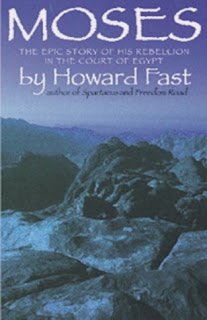 |
| Hesperides, Burne-Jones.Public Domain |
Golden apples appear in Greek myths more than once. Robert Graves had a theory about them being the sacred king’s passport to paradise. Whatever. Let’s just think of the stories. Here are three.
The golden apples of the Hesperides were on a tree belonging to the goddess Hera. The Hesperides were the daughters of the Titan Atlas, who were set to guard the tree, but the girls couldn’t resist scrumping apples, so the job was given to a dragon called Ladon instead. Unfortunately for Ladon, he was shot by Heracles in the course of his Eleventh Labour.
Not that Heracles actually picked the apples himself. According to the story, which I remember first hearing from a teacher in primary school(I think it was Mr Kaufman, who also introduced us to the Peanuts cartoons), Heracles had no idea where to find the orchard, so, being a hero, instead of asking directions, he grabbed Nereus, one of those sea gods who tend to change shape when you catch them, and asked him the way. Nereus told him, and also advised him to get Atlas to fetch the apples for him.
Atlas, who was holding up the world by then, agreed if Heracles held up the world while he went to fetch the apples. Heracles shot the dragon and took the load. At this point, instead of running off, Atlas got the apples and returned, but wasn’t keen to take back his load.
“Okay,” said Heracles, “but could you just hold it for a minute while I put something on my head to make it more comfortable?”
Poor, dumb Atlas obliged, and you can guess what happened next. Heracles had to hand the apples to Eurystheus, the king who was setting the tasks. And after all that, the apples were handed back. The point was just to do it!
The next golden apple story has a girl called Atalanta in it. Atalanta was a tough warrior gal and a speedy runner. When her father told her she had to get married, she said she would only marry the man who could outrun her in a foot race. Anyone who lost would be killed. A young man called Melanion decided to have a go. The goddess Aphrodite gave him three golden apples(were they from the orchard of the Hesperides, I wonder?) and told him to roll them ahead of Atalanta during the race. They did the trick beautifully as she was distracted by stopping to pick them up, a bit like the tortoise and the hare, and lost the race. She had to marry him then, but eventually ran off with a guy called Meleager, whom she had met during the Calydonian boar hunt. Oh, well.
My favourite is the story of the golden apple that sort of started the Trojan War. You think the fairy in Sleeping Beauty was offended by not being invited to a party? Try Eris, goddess of discord, who was not invited to the wedding of Peleus and Thetis(parents of Achilles). She actually started a whole war over it!
Using a golden apple.
Throwing down the apple, labelled “For the fairest” between three goddesses, Hera, Aphrodite and Athene, she flew off cackling. Maybe there were evening classes in psychology on Olympus? Anyway, the three of them fought over it and went off to get a ruling from Paris, the Trojan prince currently working as a humble herdsman. Aphrodite bribed him with a promise to give him the beautiful Helen, even though she was married. So was he, for that matter, but what the heck. He awarded her the apple. Frankly, I wouldn’t have wanted to be Paris, with three goddesses glaring at me, one of them the Queen of the gods.
There is a lot of Trojan War fiction, some of which I will mention later in this series of posts, but I’ll give a plug here to a short story I wrote for an anthology, Light Touch Paper, Stand Clear, published by Peggy Bright Press. In my story, “Five Ways To Start A War”, Paris awards the apple to Aphrodite less because of the bribe and more because of what she could do to his favourite bodily organ if she is annoyed... If you’re curious, the anthology is still available from the publisher or Amazon.
Come back tomorrow for the tale of Bellerophon and the Chimera!








